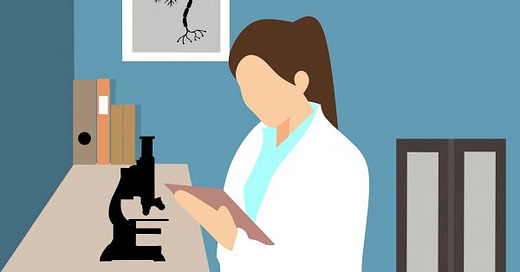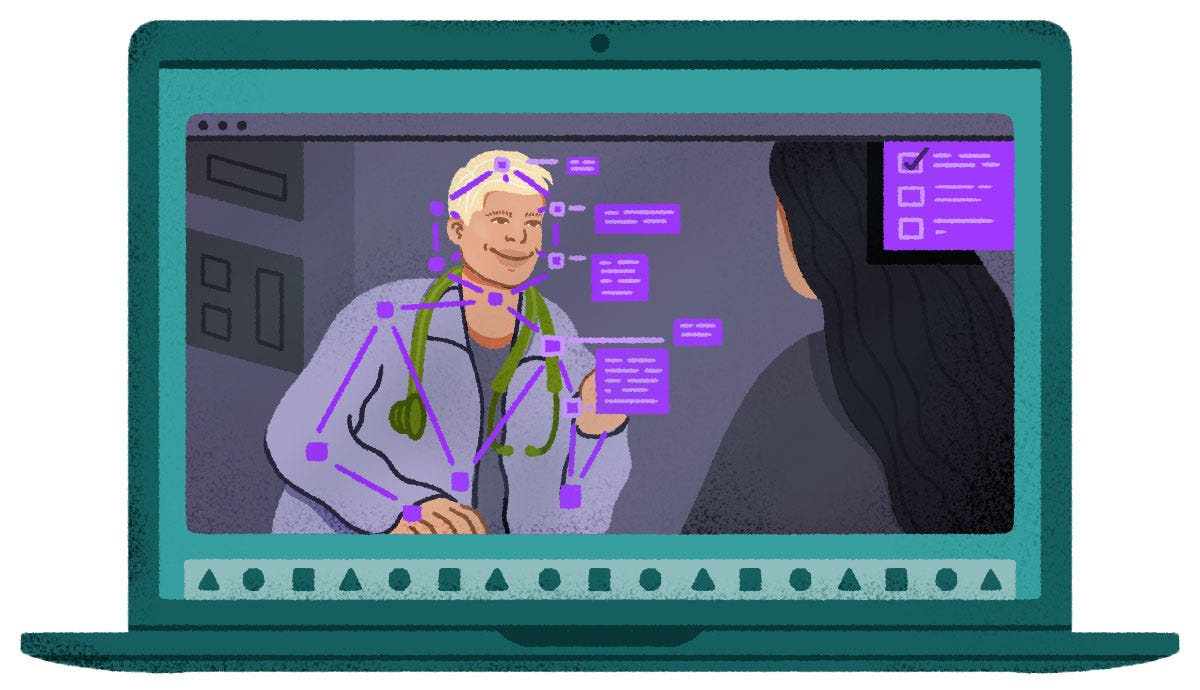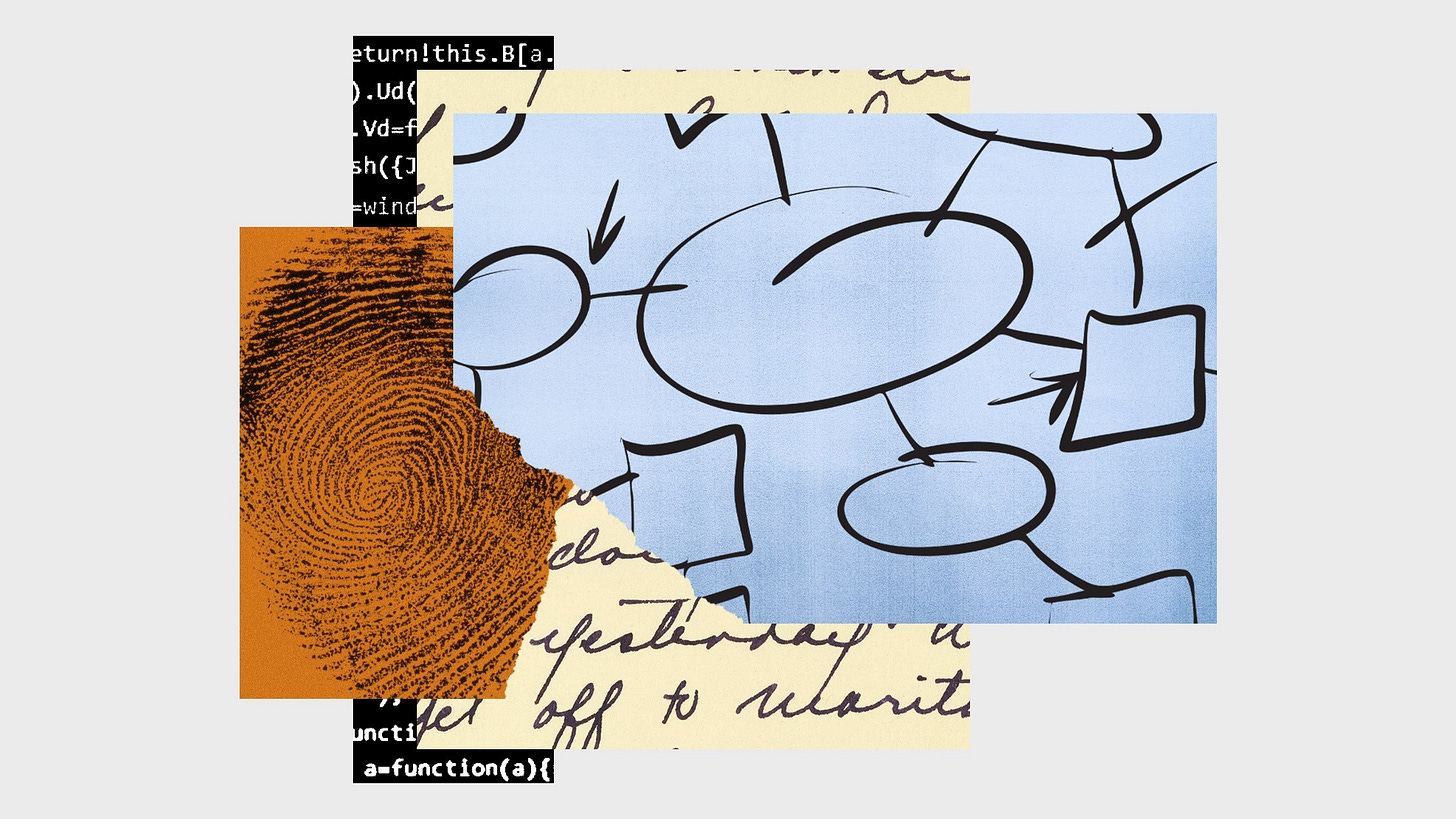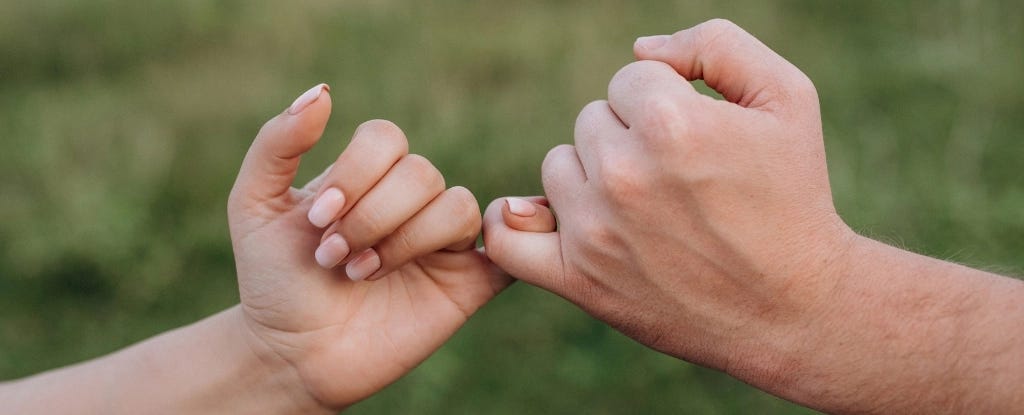Sci-Ed Update 257
Implicit bias, heart can influence emotion, truth serums, using gestures while teaching, mushrooms magnify memory, and more stories
DO NO UNCONSCIOUS HARM
Researchers are finding new ways to mitigate implicit bias in health care providers
Image: THUMY PHAN
Stories [of bias against patients] are unfortunately common, say researchers who examine how implicit biases—unconscious assumptions based on skin color, gender, sexual preference, or appearance—in health care providers affect patient care.
… project, called UnBIASED (Understanding Biased patient-provider Interaction and Supporting Enhanced Discourse), is at the leading edge of a wave of efforts to counter the negative effects of bias in medicine. From creating new models of education and training, to developing accurate tests to objectively measure pain, scientists are working to provide health care workers—and institutions—with the tools to diminish bias and provide equitable care.
Although it might be too early to know whether these interventions are successful and long-lasting, some strategies appear promising.
Read more→ AandP.info/fzy
The Heart Can Directly Influence Our Emotions
Researchers find that an increased heart rate can induce anxiety in mice, given the right context.
Fluorescent image showing DAPI (blue) and ChRmine expression (red) in a mouse heart. FROM HSUEH ET AL. NATURE
During feelings of anxiety, the brain kicks the heart into overdrive. But as it races, does the heart, in turn, talk to the brain? For centuries, scientists have debated whether the heart holds sway over the mind, and now, research published today (March 1) in Nature suggests that physical states can influence emotional ones. The study found that an elevated heart rate can cause anxious behaviors in mice—but only in risky circumstances. This suggests that interventions that target the heart might be effective treatments for panic disorders, the authors suggest.
Read more→ AandP.info/3d7
Study finds mushrooms magnify memory by boosting nerve growth
Researchers from The University of Queensland have discovered the active compound from an edible mushroom that boosts nerve growth and enhances memory.
"Pre-clinical testing found the lion's mane mushroom had a significant impact on the growth of brain cells and improving memory.
"Laboratory tests measured the neurotrophic effects of compounds isolated from Hericium erinaceus on cultured brain cells, and surprisingly we found that the active compounds promote neuron projections, extending and connecting to other neurons.”
Read more→ AandP.info/3k7
AI Reveals the Most Human Parts of Writing
It’s easy to be for or against including computer-generated text in your work, but I predict the conversation will get much more nuanced as we encounter the various ways computers can impact our writing. Writers want to protect their authenticity and intention.
It may be useful to think of computer-generated text as dancing with the writer’s text. Most writers aren’t against collaboration. They just want to be in control of their own dance. As long as the computer can match the writer’s footwork, writers are happy to let a computer contribute to the performance. But the moment the computer steps on the writer’s toes, writers may get spooked. A plot point here, a stunning sentence there, an editorial comment that pushes the writer a little further; no one task is off the table.
But when a computer ends up changing what the writer set out to achieve, writers may start to wonder whether their vision is getting muddied by an entity that lacks any experience with the real world.
Read more→ AandP.info/l3x
1 Change to How You Speak Makes What You Say 20 Percent More Memorable, Research Shows
Do you want people to remember more of what you say? Then use hand gestures while you speak. That's the result of some fascinating research from the Max Planck Institute for Psycholinguistics and TiCC Tilburg University in the Netherlands. But not just any hand gestures will work. "Beat gestures," which add additional emphasis to the syllables you stress while speaking, increase listeners' comprehension and retention of what you say. And though the experiments were carried out with Dutch speakers, the effect almost certainly works in English and other languages as well.
Kevin Patton comment→ I think many of us educators use hand gestures a lot, anyway. But I’m going to be more intentional about it now, after reading this article.
Read more→ AandP.info/asu
An antibody injection could one day help people with endometriosis
The painful gynecological disease affects some 190 million people worldwide
Women with endometriosis can experience debilitating pelvic pain. Treatment options are limited. VIROJT CHANGYENCHAM/MOMENT/GETTY IMAGES
Monthly antibody injections reversed telltale signs of endometriosis in monkeys, researchers report February 22 in Science Translational Medicine. The antibody targets IL-8, a molecule that whips up inflammation inside the scattered, sometimes bleeding lesions that mark the disease. After neutralizing IL-8, those hallmark lesions shrank, the team found.
Read more→ AandP.info/4yb
Here’s how lemon juice may fend off kidney stones
Nanoparticles in the juice slowed the formation of the stones in rats
Lemon juice is a well-known home remedy for kidney stones. Now, researchers have a better idea about how it works. ANASTASIIA KRIVENOK/MOMENT/GETTY IMAGES PLUS
Lemons contain nanoparticles that, when fed to rats, block stone formation, scientists report in the Feb. 22 Nano Letters. If the tiny sacs do the same for humans, the nanoparticles might one day offer a way to prevent kidney stones in people, says pharmaceutical scientist Hongzhi Qiao of Nanjing University of Chinese Medicine.
Lemon juice is a well-known home remedy for kidney stones, which form when minerals crystalize and clump up inside the kidney (SN: 9/21/18). These rocky lumps can knock around in the urinary tract, slicing and dicing tissues as they eventually pass out of the body (SN: 10/31/16). “It’s so, so, so painful,” says Jingyin Yan, a nephrologist at Baylor College of Medicine in Houston who was not part of the new study. Patients may feel sharp pain in their back, side or lower abdomen when they pass a stone, she says. “People describe it as worse than delivering a baby.”
Kevin Patton comment→ I’m an iced tea drinker. Because drinking it may increase my risk of kidney stones, I always add lemon. Maybe I’ll be adding nanoparticles instead on days when I want to enjoy the pure tea flavor without the lemon.
Read more→ AandP.info/b79
Indoor air is full of flu and COVID viruses. Will countries clean it up?
The current pandemic has focused attention to the importance of healthy indoor air and could spur lasting improvements to the air we breathe.
Source: NERA Economic Consulting
Making indoor spaces safe from infection could also reduce exposure to pollutants such as fine particulates from wildfire smoke and cooking, volatile organic compounds leached from furniture, and allergy-causing moulds and pollen. But it could also raise energy costs and contribute to greenhouse-gas emissions.
Researchers are still working to pin down how best to ventilate indoor spaces to prevent infections from spreading, and what alternative technologies might replace or enhance mechanical ventilation systems. But many say that enough is already known to start demanding safer indoor spaces.
It’s a race against time. As concern over COVID-19 wanes, experts wonder how much progress countries will make before the next big outbreak of an airborne infectious disease.
Kevin Patton comment→ I’ll bet that nearly all colleges and universities are ignoring this issue. Too bad.
Read more→ AandP.info/cpa
Why Do A&P Students Hate Histology? And How Do We Fix That?
Image: PxHere CC0 Mohamed Hassan
Host Kevin Patton discusses the fact that many students hate histology. And perhaps even some faculty. Are there any ways to fix that? Kevin thinks he may have found a breakthrough idea.
To listen, click the player (if visible) or go to theAPprofessor.org/podcast-episode-113.html
'Truth Serums' Exist – But They Probably Don't Work The Way You Think They Do
(Omelnytskyi/Canva)
Humans have known since the time of the Roman Empire that we're more readily truthful while under the influence. That's where the idea behind the term "truth serum" comes from.
Truth serum refers to a number of mind-altering drugs that are supposed to make you incapable of lying, but the reality is no drug is powerful enough to grip the human mind so tightly as to make it impossible to lie.
Some truth serums, like sodium thiopental, slow the speed at which your body sends messages from your spinal cord to your brain.
As a result, it's more difficult to perform high-functioning tasks, such as concentrating on a single activity like walking a straight line or even lying. It's this concentration you need to think up a lie that truth serum removes. So in that way, lying can be more difficult, but not impossible.
The same thing happens when you're nodding off and reaching that twilight state where you're in between consciousness and sleep. If you're not a compulsive liar, then it's likely more difficult for you to lie than tell the truth.
As the famous American author wrote in Mark Twain's Notebook (published posthumously in 1935): "If you tell the truth, you don't have to remember anything."
Kevin Patton comment→ I do not recommend using truth serums for cheating incidents.
Read more→ AandP.info/bjk












